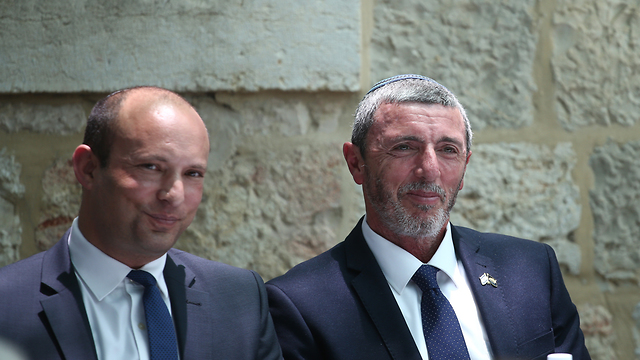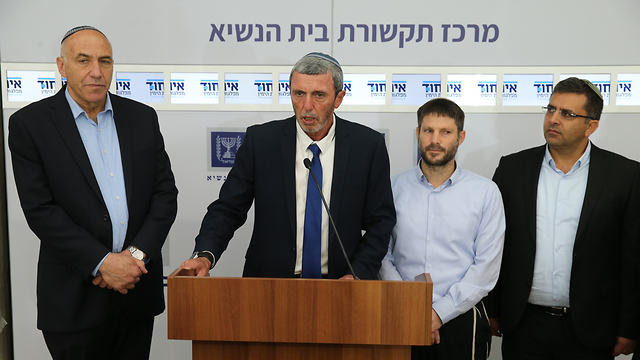
Heads of the three parties which made up the United right in the last election campaign - Jewish Home, led today by Rabbi Rafi Peretz; Tekuma, led by Bezalel Smotrich; and Otzma the far-right party with Itamar Ben-Gvir at the helm - separately believe they can each mobilize 70,000 to 100,000 voters. Ironically though, together they managed to gain only 159,000 votes in the last elections.
Yet more contenders - Moshe Feiglin and his Zehut party, which had failed to pass the threshold needed last time, and Naftali Bennett and Ayelet Shaked's New Right, that also failed to make it into the Knesset - have yet to announce whether they intend to join the Union of Right-Wing Parties or go it alone again and hope for a better result in the September do-over.
Being optimistic, these parties are competing for no more than 12 Knesset seats; being realistic, it is probably less. This leaves a very small piece of the pie for each party - certainly if their members hope to secure meaningful positions in the new coalition govenrment.

Creating one party for everyone is an unlikely scenario, primarily because voters for one element or another will stay away, repelled by the others in the union. Bennett and Shaked voters, for example, would reject Ben-Gvir.
In addition, the choice of who should lead such a union seems an impossible one to make, with four contenders already vying for the job.
Therefore, two parties made up of separate unions is a more likely option - one more religious and hard-line and one with a relatively more liberal point of view.
This scenario still poses an entirely different challenge: will there be enough votes for both entities to cross the minimum threshold needed to enter the Knesset? Would it leave one out? Or worse, will it leave both out altogether?
The solution to this conundrum is still unclear, although the need to set ego aside is evident. If everyone insists on being the leader, right-wing voters will end up with no leader at all.

















